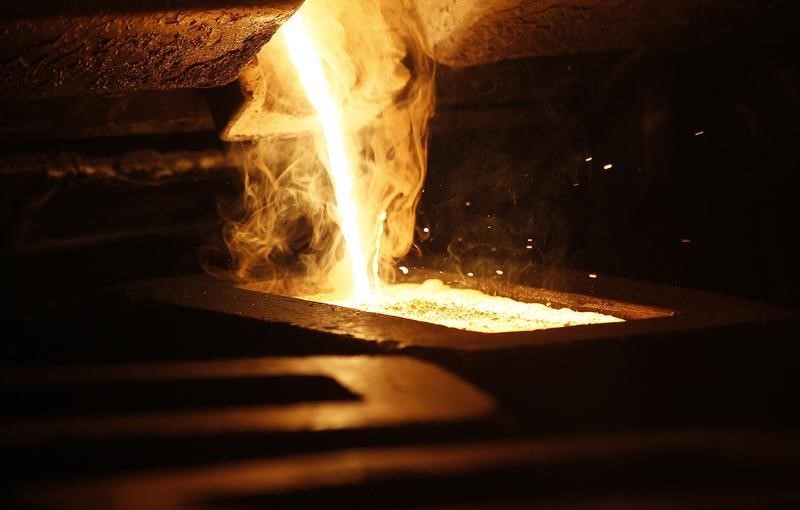By Ambar Warrick
Investing.com-- Gold prices hit a three-month high on Wednesday after a Russian missile strike on Polish territory ramped up fears of a NATO-led escalation in the Ukraine conflict, boosting demand for traditional safe haven assets.
Spot gold rose 0.1% to $1,780.62 an ounce, while gold futures advanced 0.1% to $1,784.05 an ounce, with both instruments touching their highest level since mid-August. They also rose 0.5% each on Tuesday.
Investors sought renewed safe haven exposure after a missile of Russian make fell in the eastern part of Poland and killed two people. The incident marks the first time that Russian weapons have struck NATO territory, with Ukrainian President Volodymyr Zelenskyy calling the strike a “very significant escalation” of the war.
NATO members said they were reviewing the incident, and warned consequences for the strike if it was intentional.
Bullion prices had surged to two-year highs during the initial days of the Russian invasion of Ukraine earlier this year. An escalation in the conflict could potentially drive up prices of the yellow metal again.
Weakness in the dollar also benefited gold prices, after data showed U.S. producer inflation hit a 14-month low in October. The reading, coupled with softer-than-expected consumer inflation data released last week, saw markets ramping up bets that U.S. inflation had eased.
This could see the Federal Reserve softening its hawkish rhetoric. The central bank is already expected to hike interest rates by a relatively smaller margin in December.
Other precious metals also benefited from safe haven buying. Silver futures rose 0.5%, while platinum futures hovered near eight-month highs.
Among industrial metals, copper prices fell for a third straight session, as concerns over slowing demand in China largely offset signs of tightening supply.
Copper futures fell 0.2% to $3.8135 a pound. Prices of the red metal were on a losing spree this week after a spike in COVID-19 cases in China drove concerns over new lockdowns in the world’s largest copper importer.
This largely offset signs of tighter copper supply in the near-term, as workers at Chile’s Escondida mine, the world’s largest copper mine, announced a strike.
The move, coupled with U.S. sanctions against Russian exporters, is expected to severely crimp global copper supply.
